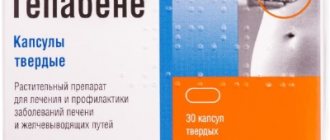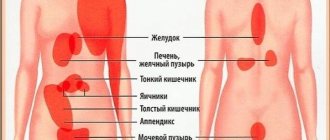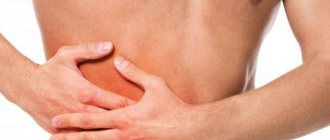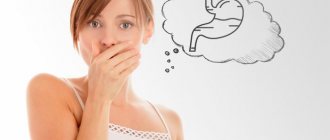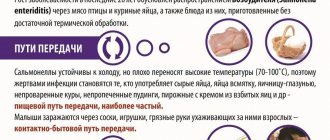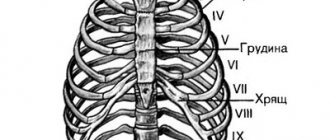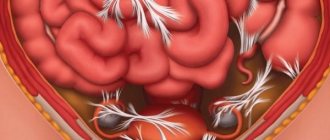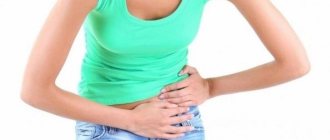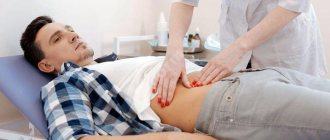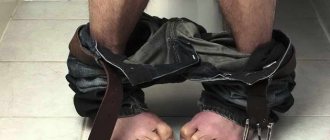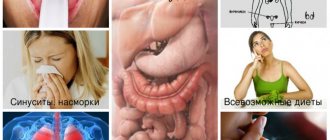- these are just complaints characteristic of many gastrointestinal diseases
More similar to IBS complaints
Functional Dyspepsia = Appears when there is a malfunction of the muscular layer of the stomach and duodenum (not caused by diseases), which continues for 3 months throughout the year. In this case, the connection between emerging pain and dysfunction of the gastrointestinal tract should not be diagnosed.
Problems with the peristaltic function of the muscle fibers of the stomach and duodenum (functional dyspepsia) occur if there is: – lack of relaxation of some parts of the stomach after food enters it (so-called accommodation); – disruption of the cycle of muscle contractions of this organ; – problems with the motor function of the anal colon; – failures of antroduodenal coordination. And also if the tendency of the stomach walls to stretch during eating is increased. Unhealthy diet, drinking large amounts of tea, coffee, alcoholic beverages. Smoking. Treatment with various medications (non-steroidal anti-inflammatory drugs). Psychological stress.
For diagnosis, in addition to examination and medical history, the following are required: – general stool analysis; examining stool for traces of blood; blood tests; establishing the presence of certain types of infections.
– Research using various medical instruments: esophagogastroduodenoscopy (the more common name is gastroscopy); studying the stomach using an X-ray machine; ultrasound examination of organs located in the abdominal cavity; other necessary procedures.
Treatment is aimed at eliminating the causes of the disease. Therapy methods are developed individually, taking into account the characteristics of the clinical picture. The main goals of treatment are: reducing discomfort; elimination of symptoms; relapse prevention
Causes of heaviness in the left hypochondrium
The problem of painful manifestations in the left side is quite “popular” and most often is a warning about the presence of many diseases. On the left side are the following organs or parts thereof:
Heaviness in the left hypochondrium and accompanying manifestations indicate a pathology of the normal functioning of one of these organs. When pain appears on the left side, this is the first sign that it is time to visit a medical center and undergo an examination.
Discomfort can vary in nature, depending on the location and cause. Experts also identify a separate type of heaviness in the left hypochondrium in front after eating. This pain also varies in the nature of its manifestation.
It is important to pay attention to the strength of the pain syndrome, its location and its nature. It is this information that will help specialists correctly determine diagnostic methods and directions for treatment.
We distinguish pain by the nature of its manifestation
As mentioned earlier, there are many different organs on the left side, which means that the appearance of discomfort can be associated with diseases of one of these organs. First, let's define what the left hypochondrium means.
The hypochondrium area is a square located at the top directly below the ribs. Based on the nature of the pain and the actions that were performed before its onset, the doctor can easily assume what caused the pain and heaviness in the left hypochondrium.
Prickly . It often occurs when the body is under intense physical stress. It can be felt while running, jumping, doing fitness and much more, but is not always a sign of illness. Most often, the appearance of unpleasant sensations indicates insufficient warm-up time and improper breathing during exercise.
Source
Physiological causes of rumbling
The rumbling in the stomach can be very strong if it is associated with a feeling of hunger. Some people experience painful sensations, and with pathologies of the stomach and pancreas, this pain becomes almost unbearable and goes away as soon as you eat a little. Seething is also possible as a result of other deviations:
- Overeating - the noise becomes loud due to the long and intense process of digesting food. If a person has not eaten for a long time and then eats too much food, the sounds become louder and additional discomfort appears.
- Abuse of sugar and fatty foods - when eating sweets, fermentation processes are activated, and fatty foods have a bad effect on overall digestion.
- Emotional stress - the body of some people reacts with strong rumbling to shocks, experiences and stress.
- Carbonated drinks, beer and other alcohol - this liquid can cause intense rumbling and even pain, and also lead to the development of gastritis and other gastrointestinal diseases.
- A sudden change of position, a long stay in the wrong position - many have noticed that sleeping in an uncomfortable position sometimes leads to pain in the intestines. In addition to pain, rumbling may also appear.
The symptoms themselves in these conditions are not dangerous to the body. However, alcohol, soda, and constant overeating over time lead to the development of dangerous diseases: gastritis, dysbacteriosis, pancreatitis, cholecystitis and even intestinal obstruction.
Constant rumbling and flatulence
Constant rumbling often occurs due to the consumption of harmful, stale or low-quality food containing palm oil, preservatives, and chemical additives.
Acidic and fatty foods can also provoke unpleasant symptoms. The situation gets worse if a person consumes a lot of simple carbohydrates. Similar symptoms appear in those who chew food poorly, eat in a hurry or on the run. Most often, people who eat fast food and talk while eating suffer from constant rumbling. The accumulation of gases increases if a person suffers from chronic constipation.
Seething can be triggered by eating certain foods that are quite healthy, but not consumed correctly:
- watermelon seeds;
- seeds from other fruits, berries and vegetables;
- other foreign objects that our body is not able to digest.
Constantly gurgling under the diaphragm on the left is not only due to poor quality nutrition. Dysbacteriosis and the proliferation of pathogenic flora are dangerous causes of unpleasant symptoms. These disorders can be provoked by taking antibiotics and other drugs.
Rumbling and transfusion in the left side
Hello, I hope for your help! A year and a half ago, I developed excessive intestinal bloating, accompanied by gurgling and rumbling in the left side. After visiting a doctor, I was prescribed: lactofiltrum, dicetel and metronidazole. After a course of treatment, things get better for a while and then everything starts again. Now for the fourth day, gases have been accumulating, especially at night, I wake up from the fact that the intestines are swollen, but only on the left side, when pressed, it rumbles and gurgles, after defecation the day is normal, and in the evening it starts again. It gets better after the gas passes. During the day I constantly burp. Blood tests are normal except for slightly increased bilirubin and ALT, ultrasound showed everything was normal except for the inflection of the bile duct. Please tell me what this could be and how to treat it. Thank you in advance!
Related and recommended questions
11 answers
Hello! Your complaints are caused by disturbances in the functioning of the pancreas and biliary system; there may also be intestinal dysbiosis. You need to undergo comprehensive treatment from your gastroenterologist, who will also select an individual diet for you.
Ways to eliminate rumbling
The easiest way to get rid of annoying symptoms is if their cause is discovered. Other methods give only temporary results. If boiling occurs in response to overeating or eating poorly tolerated food, you can take tablets to remove gases:
- Motilium is used to improve intestinal motility.
- Espumisan is a carminative that removes excess gases.
- "Linex" is a probiotic that normalizes the state of intestinal microflora.
The doctor will select other drugs if they are needed to treat a particular disease.
In the treatment of boiling caused by pathologies of the intestines and stomach, proper nutrition is of particular importance. Only a rational diet can relieve unpleasant symptoms and even completely cure the patient from the disease.
Various gastrointestinal diseases can provoke rumbling in the hypochondrium, but they all require careful attention, correct diagnosis and strict treatment. Without making a diagnosis, you should not treat disorders yourself - this can lead to complications.
What hurts on the left side under the rib?
The fact is that most of us, having felt such uncomfortable sensations, immediately attribute them to heart problems and start drinking Validol.
Nature and intensity of pain
gastritis or gastric ulcer. May be accompanied by vomiting, which brings relief, decreased appetite and diarrhea;
stomach cancer. May be accompanied by a sharp weight loss, weakness, anemia, symptoms similar to toxicosis in pregnant women (for example, the appearance of an aversion to meat);
lung diseases. Especially if it worsens with coughing and deep breaths (pneumonia, inflammation, tuberculosis or cancer of the left lung). May be accompanied by fever, shortness of breath, constipation and general intoxication of the body;
Pain on the left under the ribs in front and behind
The spleen is located in the upper left side of the abdominal cavity. Being close to the surface of the body, it is most often susceptible to various injuries. In addition, a number of diseases can contribute to an enlarged spleen, which stretches and causes dull pain under the rib on the left.
If not diagnosed promptly and left untreated, an enlarged spleen can rupture. In this case, the pain will be acute, and the skin around the navel will turn blue, which will occur due to internal hemorrhage into the abdominal cavity.
If you observe similar symptoms in yourself or your loved ones, immediately call an ambulance, as even a minute’s delay can be fatal. However, even with timely hospitalization, there is a high probability of removal of the spleen.
If a ruptured spleen is suspected, it is recommended that the patient apply a cold compress to the left side before the ambulance arrives.
Sharp, aching, nagging or girdling pain in the hypochondrium, accompanied by nausea or vomiting, may be witnessed
Source
Pancreatic diseases
The most common disease is pancreatitis. The pancreas stops functioning normally, becomes inflamed and absorbs its own cells.
During an exacerbation of pancreatitis, unbearable pain occurs on the left side. They can spread over the entire surface of the abdomen and radiate to the back. Temporary relief is brought by the pose of bending over while sitting on a chair. An attack may begin after eating or drinking alcohol, and may be accompanied by dyspeptic disorders.
In case of any of the above pathological conditions, urgent consultation with a specialist is necessary. Pain in the hypochondrium cannot be ignored. It may indicate serious disorders within the body.
Author : Petrunina Svetlana Sergeevna, intensive care nurse, specialization: acute poisoning, resuscitation, especially for the site Zhkt.ru
Pain in the left hypochondrium
Feelings of discomfort and pain in the left hypochondrium are a fairly common reason for patients seeking medical help. Such phenomena can be different in their manifestations (aching, cutting, sharp, etc.) and in intensity, as well as in duration. To establish their cause, one visit to the doctor is not enough; additional examinations are required. This is due to the fact that in this segment of the body there are several organs, which, due to the pathological processes occurring in them, thus make themselves known.
Organs of the left hypochondrium
In addition, there are some other types of pain in this area that are not directly related to the above organs. They are a consequence of diseases of the internal organs in other areas of the abdomen or parts of the body and spread along nerve fibers (see below).
Causes of pain in the left hypochondrium
Types of pain
Sharp, acute pain usually indicates the presence of serious damage to internal organs, requiring immediate hospitalization. In this case, a person experiences a strong, almost unbearable pain reaction, often accompanied by loss of consciousness. If this does not happen, then the person tries to alleviate the condition by rushing about in search of a comfortable body position.
This type of pain can occur in many cases, most often associated with the chronic course of diseases of the organs of the left hypochondrium. These include chronic forms of gastritis, gastric ulcers, pancreatitis and pyelonephritis, colitis or duodenitis. Also, coronary heart disease and pre-infarction conditions often cause such pain syndrome.
With this type of pain, the patient often does not consult a doctor in time and adapts to them. As a result, processes occur in the body for a long time without treatment, leading to the destruction of organs and
Source
Rumbling in the side
Hello, I often have a rumbling in my left side under my ribs, sometimes there is a tingling sensation and a feeling of a foreign object, what could this be? some say IBS or from food. Sometimes it’s quiet for a week, then it rumbles for three days, then it’s quiet again. and so with the changes
Hello. You may have a congenitally elongated sigmoid colon. I don't know your age. You are recommended to do a colonoscopy, irrigoscopy, ultrasound of the abdominal organs, undergo a blood test, coprogram, rule out celiac disease. Check to see if any specific products cause such complaints. After clarifying the diagnosis, it is possible to prescribe adequate treatment. Sincerely, Popova GM
Hello, I’m 25 years old, until I was 16 years old I didn’t have anything rumbling and I ate whatever I wanted, the food was wrong, as I think I often overeated or didn’t eat enough, then I was in the hospital and was treated for noise in my head, after being discharged this happened problem, I had a colonoscopy 2 times and I had blood donated and an ultrasound too, everything was healthy, only when analyzing the stool it was revealed that there was a lack of E. Coli bacteria and a weakened immune system. Because of this, I was treated with expensive drugs that strengthen the immune system and drank bacteria, but nothing changed, I eat sweets very rarely, very often bloating, false calls to the toilet, although there is no diarrhea or constipation, a feeling of thirst, constant rumbling, a reaction to all foods I checked and noticed that the intestines always react differently to the same product, buckwheat can make it rumble, but other times everything is quiet because of it. I live in Germany and our gastroenterologists don’t even want to treat a problem that is so stupid in their opinion , they prescribe medications for bloating, but they only help for a short time, and this greatly poisons life. The naturopathic doctor believes that it is IBS and intestinal weakness. what do you say.
Hello! Maybe it's IBS. But first we must exclude
Source
Diagnostic methods
To detect a condition that can provoke constant seething with additional unpleasant symptoms in the form of belching or flatulence, a full diagnosis is required:
- testing stool for dysbacteriosis, parasites, bacteria;
- Ultrasound of the abdominal cavity;
- examination of the intestines using a probe;
- FGDS for examination of the stomach.
If doctors are unable to detect the cause of rumbling and seething in the left or right side, additional examination methods are prescribed, including CT or MRI with a contrast agent.
Causes of heaviness in the left hypochondrium
The problem of painful manifestations in the left side is quite “popular” and most often is a warning about the presence of many diseases. On the left side are the following organs or parts thereof:
Heaviness in the left hypochondrium and accompanying manifestations indicate a pathology of the normal functioning of one of these organs. When pain appears on the left side, this is the first sign that it is time to visit a medical center and undergo an examination.
Discomfort can vary in nature, depending on the location and cause. Experts also identify a separate type of heaviness in the left hypochondrium in front after eating. This pain also varies in the nature of its manifestation.
It is important to pay attention to the strength of the pain syndrome, its location and its nature. It is this information that will help specialists correctly determine diagnostic methods and directions for treatment.
We distinguish pain by the nature of its manifestation
As mentioned earlier, there are many different organs on the left side, which means that the appearance of discomfort can be associated with diseases of one of these organs. First, let's define what the left hypochondrium means.
The hypochondrium area is a square located at the top directly below the ribs. Based on the nature of the pain and the actions that were performed before its onset, the doctor can easily assume what caused the pain and heaviness in the left hypochondrium.
Rumbling and transfusion in the left side
Hello, I hope for your help! A year and a half ago, I developed excessive intestinal bloating, accompanied by gurgling and rumbling in the left side. After visiting a doctor, I was prescribed: lactofiltrum, dicetel and metronidazole. After a course of treatment, things get better for a while and then everything starts again. Now for the fourth day, gases have been accumulating, especially at night, I wake up from the fact that the intestines are swollen, but only on the left side, when pressed, it rumbles and gurgles, after defecation the day is normal, and in the evening it starts again. It gets better after the gas passes. During the day I constantly burp. Blood tests are normal except for slightly increased bilirubin and ALT, ultrasound showed everything was normal except for the inflection of the bile duct. Please tell me what this could be and how to treat it. Thank you in advance!
Related and recommended questions
11 answers
Hello! Your complaints are caused by disturbances in the functioning of the pancreas and biliary system; there may also be intestinal dysbiosis. You need to undergo comprehensive treatment from your gastroenterologist, who will also select an individual diet for you.
Hello, my stomach has been rumbling and belching for a year now. I was diagnosed with IBS, took a bunch of pills, nothing. Now I'm taking colofort. It seems to help a little. But I was also diagnosed with chronic gastritis, I have a sour mouth, and sometimes heartburn. It also rumbles when I lie down on my left side and during PMS it rumbles below. What could it be? IBS or gastritis?
This is what they put on the FGDS. Nothing has helped the forest for over a year now. I am prescribed colofort, neobutin, etc. Doesn't help me. Perhaps it is not the symptom that needs to be treated, but the disease? Could it be due to the diagnosis of FGDS?
Considering FGDS, it is necessary to deal with bile reflux. Diet 5, it is advisable to eat frequently and in small portions so that bile is secreted correctly. Phosphalugel 3-4r
Source
What hurts on the left side under the rib?
The fact is that most of us, having felt such uncomfortable sensations, immediately attribute them to heart problems and start drinking Validol.
Nature and intensity of pain
gastritis or gastric ulcer. May be accompanied by vomiting, which brings relief, decreased appetite and diarrhea;
stomach cancer. May be accompanied by a sharp weight loss, weakness, anemia, symptoms similar to toxicosis in pregnant women (for example, the appearance of an aversion to meat);
lung diseases. Especially if it worsens with coughing and deep breaths (pneumonia, inflammation, tuberculosis or cancer of the left lung). May be accompanied by fever, shortness of breath, constipation and general intoxication of the body;
Pain on the left under the ribs in front and behind
The spleen is located in the upper left side of the abdominal cavity. Being close to the surface of the body, it is most often susceptible to various injuries. In addition, a number of diseases can contribute to an enlarged spleen, which stretches and causes dull pain under the rib on the left.
If not diagnosed promptly and left untreated, an enlarged spleen can rupture. In this case, the pain will be acute, and the skin around the navel will turn blue, which will occur due to internal hemorrhage into the abdominal cavity.
If you observe similar symptoms in yourself or your loved ones, immediately call an ambulance, as even a minute’s delay can be fatal. However, even with timely hospitalization, there is a high probability of removal of the spleen.
If a ruptured spleen is suspected, it is recommended that the patient apply a cold compress to the left side before the ambulance arrives.
Sharp, aching, nagging or girdling pain in the hypochondrium, accompanied by nausea or vomiting, may be witnessed
Source
Causes of the disease
Rumbling and seething in the right or left side when a person is hungry, especially in the morning, is an absolutely normal phenomenon. The same thing can happen after eating. Rumbling in the stomach also appears during excitement, when a person cannot control emotions. These are just a few cases. But too frequent and pronounced rumbling may indicate the presence of diseases of the gastrointestinal tract. In this case, you need to consult a specialist. In general, it is advisable to do this even if you are firmly convinced that rumbling is not a symptom of any disease. Without an examination by a specialist using modern medical equipment, nothing can be said.
The most common causes of rumbling:
- Intestinal obstruction.
- Gas formation.
- Enhanced peristalsis.
The problems of increased peristalsis and increased gas formation are easier to solve than the problem of intestinal obstruction. Enhanced peristalsis can be restored, and increased gas formation can hardly be called a serious problem - there are a huge number of remedies that will help cope with this difficulty. With intestinal obstruction, the movement of food is disrupted or stops altogether. This is very dangerous, since in advanced cases emergency surgery may be required.
Sometimes pain in the sides may appear - if the right or left side hurts, this may indicate problems with the stomach or intestines. There are several causes of pain. For example, a likely cause may be irritable bowel syndrome or dysbiosis. To get rid of unpleasant sensations, it is recommended to consult a doctor who will help you choose the right diet, adjust your diet and prescribe the necessary medications. There is no need to try to do this yourself and buy medications after learning about them from advertisements. Each person has their own characteristics of the body, so treatment must be taken seriously. Traditional medicine is, of course, good. But infusions and decoctions alone will not be enough to get rid of serious diseases.
Severe seething is sometimes a sign of intestinal infection with parasites. The use of antibiotics can also cause bubbling or rumbling. In women, such symptoms are often observed before the onset of the menstrual cycle and during pregnancy. It is very important in such cases to contact the clinic.
Pain in the left hypochondrium
Feelings of discomfort and pain in the left hypochondrium are a fairly common reason for patients seeking medical help. Such phenomena can be different in their manifestations (aching, cutting, sharp, etc.) and in intensity, as well as in duration. To establish their cause, one visit to the doctor is not enough; additional examinations are required. This is due to the fact that in this segment of the body there are several organs, which, due to the pathological processes occurring in them, thus make themselves known.
Organs of the left hypochondrium
In addition, there are some other types of pain in this area that are not directly related to the above organs. They are a consequence of diseases of the internal organs in other areas of the abdomen or parts of the body and spread along nerve fibers (see below).
Causes of pain in the left hypochondrium
Types of pain
Sharp, acute pain usually indicates the presence of serious damage to internal organs, requiring immediate hospitalization. In this case, a person experiences a strong, almost unbearable pain reaction, often accompanied by loss of consciousness. If this does not happen, then the person tries to alleviate the condition by rushing about in search of a comfortable body position.
This type of pain can occur in many cases, most often associated with the chronic course of diseases of the organs of the left hypochondrium. These include chronic forms of gastritis, gastric ulcers, pancreatitis and pyelonephritis, colitis or duodenitis. Also, coronary heart disease and pre-infarction conditions often cause such pain syndrome.
With this type of pain, the patient often does not consult a doctor in time and adapts to them. As a result, processes occur in the body for a long time without treatment, leading to the destruction of organs and
Source
